February 2018 Sustainable Development
Read the articles selected in February 2018
Financing a sustainable European economy
Source: asvis.it, 7 February
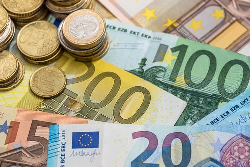
From the European Coal and Steel Community to the Paris Agreement and the 2030 Agenda, Europe is re-orienting its financial system towards sustainable investments and the real economy. This roadmap shows how this transition is a unique opportunity to strengthen financial stability in a long-term perspective.
Making blended finance work for the Sustainable Development Goals
Source: http://www.oecd.org, 29 January
Blended finance is an innovative way to mobilize capital to support development in developing countries. This mix of development finance and commercial finance, which presents potentials and risks, needs a common framework of mutually agreed standards and guidelines.
Global Happiness policy report
Source: http://asvis.it/

The Global Happiness Policy Report 2018 is the outcome of decades of research on a transdisciplinary field oriented to a change in the policy perspective, showing why and how happiness and well-being, taken as a policy objective, is a concrete measure of the consequences of political choices.
Roadmap for private actors to scale up private sector finance and investment in Sustainable Development
Source: https://www.unglobalcompact.org
The amount of investments needed into sectors such as education, clean energy, agriculture, and health in order to reach the SDGs is so immense that it’s impossible taking action without the private sector, promoting public policies which further responsible investment.
Read more:
https://www.unglobalcompact.org/docs/news_events/PSF2017/unga-finance-flyer-print.pdf
ILO Declaration on Social Justice for a Fair Globalization
World Day of Social Justice 20 February

In this Day, the Declaration on Social Justice for a Fair Globalization, adopted by the International Labour Conference in 2008, which has institutionalized the concept of Decent Work, comes at a time of widespread uncertainty in the world of work, the fundament of our societies and the sustainable development.
How’s Life? 2017
Source: http://asvis.it/, 12 February
This report gives a portray of well-being across Oecd countries, ten years after the global crisis. If a wide range of indicators shows economies strengthening, the individual perception of the quality of life moves away and still feels the consequences of the recent financial choc.
Read more:
L’utopia di un mondo sostenibile è possibile, i cambiamenti sono già in atto
By Flavia Belladonna
Source: http://asvis.it, 8 February
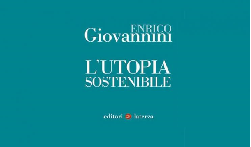
L’utopia sostenibile by Enrico Giovannini represents the change of the current development model as a possibility and a necessity, starting from the evidence of its unsustainability, to individuate the tools and the actions that make this utopia real, just because sustainable.
Read more:
World Radio Day 13 February
Source: http://www.un.org

Radio is among the mass media the oldest but the most democratic and dynamic: it reaches at a low cost the most disadvantaged groups and the most remote communities, listening live-recorded voices and needs of people, always at the pace of technological transformations.
Read more:
http://www.un.org/en/events/radioday/index.shtml.
Wait- the ozone layer is still declining
By Annie Sneed
Source: Scientific American, 6 February
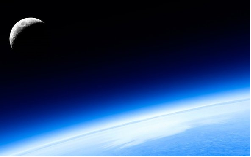
Experts are trying to understand the reasons of the shrinking in the lower stratosphere, a new finding to be confirmed by more precise measurements after researchers found a hole in the ozone layer over Antarctica.
Read more:
https://www.scientificamerican.com/article/wait-the-ozone-layer-is-still-declining1/
World leaders join new drive to beat noncommunicable diseases
Source: http://www.who.int, 16 February
The WHO has announced an action to accelerate prevention and control of noncommunicable diseases, such as heart diseases and diabetes, that kill globally 15 million people between the ages of 30 and 70 every year, supporting governments in their policies protecting their citizens from the risk factors.
Read more:
http://www.who.int/mediacentre/news/releases/2018/world-leaders-ncds/en/
Global Opportunity Report 2018
Source: https://www.unglobalcompact.org
The SDGs offer new opportunities for business. A systemic change needs solutions that have to be capitalized. The market success lies at the crossing point between technology and sustainability. Health, food, water and energy are the key sectors for tomorrow’s innovation.
Read more:
https://www.unglobalcompact.org/docs/publications/Global_Opportunity_Report_2018.pdf
Resolution adopted by the General Assembly on 21 December 2016
Source: asvis.it, 6 February
In its willingness to implement the 2030 Agenda in a coherent strategy, the General Assembly reaffirms its recognition that poverty in all its dimensions is the greatest global challenge upon which to build a sustainable development in its three fundaments: economic, social and environmental.
Read more:
https://undocs.org/A/RES/71/243
Secretary-General’s remarks on the Second Report on the Repositioning of the UN Development System, in the Context of the Quadrennial Comprehensive
Source: http://asvis.it/, 6 February
The 2030 Agenda is an ambitious project for humanity, the ambition to live all of us better and more happily, to see poverty and diseases, illiteracy and hunger reducing. Business as usual approaches can’t arrive at understanding sustainable development in its whole meaning of a fundamental human right.
Read more:
International Day of Women and Girls in Science 11 February
Source: http://www.un.org
This Day declines the discourse of gender parity in the field of knowledge, education, employment and decision-making in sciences, in order to eliminate all discriminations against women and girls in the participation to the scientific sector, so vital for the progress and a for a development which would be sustainable.
Read more:
http://www.un.org/en/ga/search/view_doc.asp?symbol=A/RES/70/212
International Day of Zero Tolerance for Female Genital Mutilation, 6 February
Source: http://www.un.org
In the world, at least 200 million women and girls have been victims of this cruel practice, the extreme form of sexual discrimination, which injuries the female body even in little girls and against their health, life and dignity. The elimination of FGM is included under the goal 5 on Gender Equality.
Read more:
http://www.un.org/en/events/femalegenitalmutilationday/
Globalization and Politics
By Michael O’Sullivan
Source: asvis.it
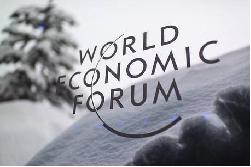
The transition from globalization to a multipolar world is an effect of disrupting political choices in the democracies across the world and at the same time the economic backdrop which will influence voter behavior, developing new models of politics, society, finance, and technology.
Boosting Investment in Social Infrastructure in Europe
By Lieve Fransen, Gino del Bufalo & Edoardo Reviglio
Source: asvis.it , 29 January
A Social Europe is more interested in people’s well-being than in financial rigor and stability. Confronting the growing inequality and divergence in our continent requires long-term investments, especially in the areas of education, health, and housing.
L’inextinguible faim de la planète
By Benoît Hopquin
Source: Le Monde, 15 December 2017
The famine is back on the Planet. Although the global production is enough for feeding everybody, the distribution of food still lets seriously malnourished and in an increasing trend 815 million of people, almost in the countries exposed to climate shocks and conflicts. A plague, but not a fate.
Climate Researchers’Work is Turned into Fake News
By Michael Grubb
Source: Scientific American, 29 January
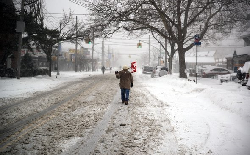
The recent deep freeze across the world seems to deny global warming. But science doesn’t rest on single events and progresses around complexity and uncertainty, a dimension abhorred by politics and media, so scientists have to sharpen their art of communication
Read more:
https://www.scientificamerican.com/article/climate-researchers-rsquo-work-is-turned-into-fake-news/
Shifting the “Horizon”
By Colin Durrant
Source: https://green.harvard.edu

At Harvard, art and design empower the perception of climate change. Through an image or a sign, we look at the landscape in a different way, and finally, we notice that also the horizon line is no longer the same.
Read more:
Info
- Pubblicato il : 05/03/2018 Modificato il : 04/04/2019

